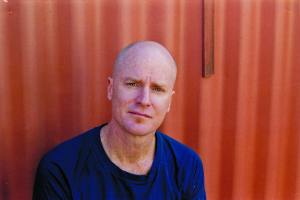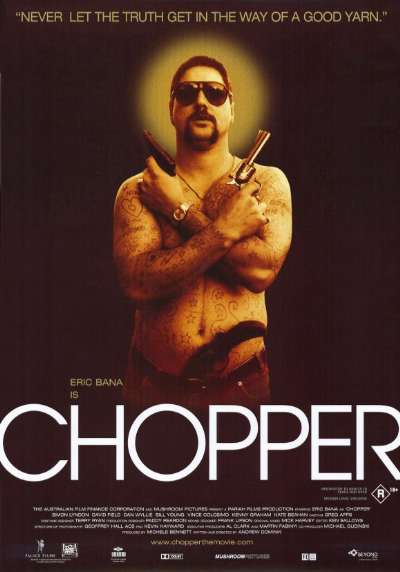Search
-
Recent Posts
- Dishing up Pulp Curry in a new way: why I am starting a Substack newsletter
- Book reviews: Deadly dames, midcentury Brit pulp and 1970s science fiction
- Mackenna’s Gold (1969): Gold, Ghosts and Frontier Violence
- Orphan Road book launch
- Orphan Road now available
- Pre-orders open for my new novel, Orphan Road
- Cover reveal: Orphan Road, my follow up to Gunshine State
- Breakfast in the Ruins podcast: New English Library Bikermania
- Why 1973 was the year Sidney Lumet took on police corruption
- Men’s Adventure Quarterly: Gang Girls issue
Categories
- 1960s American crime films
- 1970s American crime films
- 1980s American crime films
- 1990s American crime films
- Adrian McKinty
- Albert Dekker
- Andre De Toth
- Angela Savage
- Angie Dickinson
- Anthony Zerbe
- Asian noir
- Australian crime fiction
- Australian crime film
- Australian noir
- Australian popular culture
- Australian pulp fiction
- Australian television history
- Ava Gardner
- Beat culture
- Belmont Tower Books
- Ben Wheatley
- Billie Whitelaw
- Black pulp fiction
- Blaxsploitation
- Book cover design
- Book Reviews
- British crime cinema
- British pulp fiction
- Bryan Brown
- Burt Lancaster
- Carter Brown
- Charles Durning
- Charles Willeford
- Chester Himes
- Christopher G Moore
- Christopher Lee
- Cinema culture
- Claude Atkins
- Coronet Books
- Crawford Productions
- Crime Factory
- Crime Factory Publications
- Crime fiction
- Crime fiction and film from Africa
- Crime fiction and film from Cambodia
- Crime fiction and film from China
- Crime fiction and film from India
- Crime fiction and film from Indonesia
- Crime fiction and film from Japan
- Crime fiction and film from Laos
- Crime fiction and film from Latin and Central America
- Crime fiction and film from Malaysia
- Crime fiction and film from New Zealand
- Crime fiction and film from Scandinavia
- Crime fiction and film from Singapore
- Crime fiction and film from South Korea
- Crime fiction and film from Thailand
- Crime fiction and film from the Philippines
- Crime Fiction and film set in Vietnam
- Crime film
- Dangerous Visions and New Worlds Radical Science Fiction 1950 to 1985
- David Goodis
- David Peace
- David Whish-Wilson
- Derek Raymond
- Diana Dors
- Dirk Bogarde
- Don Siegel
- Don Winslow
- Donald Westlake aka Richard Stark
- Dystopian cinema
- Ernest Borgnine
- Eurocrime
- Fawcett Gold Medal Books
- Femme fatale
- Fernando Di Leo
- Filipino genre films
- Film Noir
- Forgotten Melbourne
- French cinema
- French crime fiction
- Garry Disher
- Gene Hackman
- George V Higgins
- Georges Simenon
- Ghost Money
- Giallo cinema
- Gil Brewer
- Girl Gangs, Biker Boys and Real Cool Cats: Pulp Fiction & Youth Culture, 1950-1980
- Gloria Grahame
- Gold Star Publications
- Gregory Peck
- Gunshine State
- Heist films
- Horror
- Horwitz Publications
- Humphrey Bogart
- Ian Fleming
- Interviews
- Ira Levin
- James Caan
- James Crumley
- James Ellroy
- James Hadley Chase
- James Woods
- Jim Brown
- Jim Thompson
- Joel Edgerton
- John Frankenheimer
- Joseph Losey
- Karen Black
- Kerry Greenwood
- Kinji Fukasaku
- Larry Kent
- Laura Elizabeth Woolett
- Lee Marvin
- Leigh Redhead
- Lindy Cameron
- M Emmet Walsh
- Mad Max
- Mafia
- Malla Nunn
- Martin Limon
- Megan Abbott
- Melbourne International Film Festival
- Melbourne Writers Festival
- Men's Adventure Magazines
- Michael Caine
- Michael Fassbender
- Mickey Spillane
- Monarch Books
- Ned Kelly Awards
- Neo Noir
- New English Library
- Newton Thornburg
- Noir Con
- Noir fiction
- Non-crime reviews
- Oren Moverman
- Orphan Road
- Ozsploitation
- Pan Books
- Parker
- Paul Newman
- Peter Boyle
- Peter Corris
- Peter Strickland
- Peter Yates
- Poliziotteschi
- Pulp fiction
- Pulp fiction in the 70s and 80s
- Pulp fiction set in Asia
- Pulp Friday
- Pulp paperback cover art
- Qui Xiaolong
- Raymond Chandler
- Richard Burton
- Richard Conte
- Robert Aldrich
- Robert Mitchum
- Robert Ryan
- Robert Stone
- Rock Hudson
- Roger Smith
- Rollerball
- Rosaleen Norton
- Roy Scheider
- Rural noir
- Sam Levene
- Sam Peckinpah
- Samuel Fuller
- Science fiction and fantasy
- Scripts Publications
- Sidney Lumet
- Sidney Poitier
- Simon Harvester
- Snowtown
- Snubnose Press
- Spies
- Stanley Baker
- Sterling Hayden
- Steve McQueen
- Sticking it the the Man Revolution and Counter Culture in Pulp and Popular Fiction 1950 1980
- Stuart Rosenberg
- Tandem Books
- Tart noir
- Tartan Noir
- Ted Lewis
- Toni Johnson Woods
- True crime
- Vicki Hendricks
- Victor Mature
- Vintage mug shots
- Vintage pulp paperback covers
- Wallace Stroby
- War film
- Westerns
- William Friedkin
- Woody Strode
- Yakuza films
- Yaphet Kotto
Nothing but noir
Recommended reading
The lurid world of pulp
- 20th century Danny Boy
- American Pulps
- Bear Alley
- Bloody, Spicy, Books
- Comics Down Under
- Everything second hand
- Existential Ennui
- Greenleaf Classic Books
- Irv O. Neil's Erotica is My Trade
- Killer Covers
- Lost Classics of Teen Lit 1939-1989
- Luminist Archives
- Men's Pulp Mags
- Mporcius Fiction Log
- Murder, Mayhem and Long Dogs
- Neglected Books
- Nocturnal Revelries
- Paperback Warrior
- Paperbacks of the Gods
- Pop Sensation
- Pulp artists
- Pulp Covers
- Pulp Crazy
- Pulp Flakes
- Pulp International
- Pulp Magazines Project
- Pulp Serenade
- Realms of the Night
- Romance Fiction Has a History
- Rough Edges
- Sin Street Sleaze
- Spy Guys and Gals
- The department of Afro American Research Arts & Culture
- The Dusty Bookcase
- The Haunted World of Richard Sala
- The Moon Lens
- The Nick Carter & Carter Brown Blog
- The Pulp & Paperback Fiction Reader
- Too Much Horror Fiction
- True Pulp Fiction
- Vault of Horror
- Vintage Nurse Romance Novels
- Vintage Romance Novels
- Welcome to the Pan Paperback
- Yellow and Creased
Support This Site
If you like what I do please support me on Ko-fi
Monthly Archives: October 2013
Pulp Friday: On The Yard
 On The Yard by Malcolm Braly picks up on two themes I’ve examined in recent Pulp Friday posts.
On The Yard by Malcolm Braly picks up on two themes I’ve examined in recent Pulp Friday posts.
The first is prison pulp, in this instance, written by someone who actually did time. A lot.
The second is the blurred line, particularly evident in the sixties and early seventies, between pulp fiction and literature.
On The Yard First published in 1967. The above is from the Fawcett Crest Books edition published a year later in 1968.
On The Yard, which is on my TBR pile, is the story of two characters, Chilly Willy, who heads the prison’s black market in drugs and sex, and of Paul, who is in jail for murdering his wife.
It’s generally seen critics as vivid depiction of penitentiary life, by a writer who spent many years in prisons, including Folsom and San Quentin. The New York Review of Books called it “arguably the finest work of literature ever to emerge from a US prison”.
Braly wrote three other novels and a biography, False Starts: A Memoir of San Quentin and other Prisons. This detailed his slow decent into crime from relatively well off beginnings. He was never a major criminal, most of his prison sentences arose from bullshit jobs. He once robbed a dentist of eleven dollars, which he subsequently lost escaping.… Read more
Chopper Read and our fascination with true crime
Two weeks ago Overland Editor Jeff Sparrow posted a short piece on this site on the passing of Melbourne criminal identity, Mark ‘Chopper’ Read. It centred on the obvious, although important point the crimes of rich get treated very differently to those of the poor.
I’ve been thinking a lot about the media’s treatment of Read’s death. Partly because as a crime writer I feel implicated by association in the media’s often-salacious interest in true crime, and it raises questions about aspects of what we, as writers of true or fictional crime, do and how we do it.
It’s also interesting to ponder why Read became such a public figure and, by extension, why contemporary Australia is so fascinated with the criminal.
You can read the rest of this piece here on the Overland website.… Read more
Book review: Missing in Rangoon
 For well over twenty years Canadian lawyer turned crime writer Christopher G Moore has chronicled change in Thailand and the surrounding region through the character of Bangkok-based American private investigator, Vincent Calvino.
For well over twenty years Canadian lawyer turned crime writer Christopher G Moore has chronicled change in Thailand and the surrounding region through the character of Bangkok-based American private investigator, Vincent Calvino.
Moore has penned thirteen Calvino books. Most of them are set in Thailand, although Moore has also taken his character to Vietnam and Cambodia. In the latest instalment, Missing in Rangoon, Calvino heads to Burma or, as it is now officially known, Myanmar.
The opening pages find Calvino standing in the shell of the Lonesome Hawk Bar, one of the establishments that used to form part of Washington Square, a well known and down at heel part of expat Bangkok, recently demolished to make way for yet another of the condominiums that mark the city’s skyline. Calvino suggests to the former owner that he should consider starting over in Rangoon, a city on the make and welcoming all comers, much like Bangkok was decades ago.
Not that Calvino particularly wants to make the journey himself. He’s being pressured to travel to Burma by a disagreeable English brothel owner, who wants to hire him to find his son. The son has disappeared in country’s capital along with his Burmese girlfriend, a real head turner and the lead singer in the band the son plays in.… Read more
Pulp Friday: What Now My Love and the Tao of counter cultural pulp fiction
 The counter culture and protest politics of the late sixties and early seventies resulted in some fascinating pulp fiction.
The counter culture and protest politics of the late sixties and early seventies resulted in some fascinating pulp fiction.
A good example is What Now My Love by Floyd Salas, published by Grove Press in 1969.
I’ve been thinking a lot lately about how one defines ‘pulp fiction’. As a general rule, pulp is understood to be anything that involves fast writing and that was not meant to last. The transitory nature of pulp can be seen in a literary sense, books not deemed part of our literary heritage, as well as the physical nature of the product, the cheap paper it was printed on, the often poor binding, etc.
I have a number of problems with this definition, not least of which is a suspicion of how ‘literature’ is defined by mainstream critics.
But that’s for another post.
The ‘what is pulp’ discussion is particularly interesting in the context of the sixties and early seventies. It was a time when publishers embraced subjects relating to the counter cultural and radical politics, and the distinction between high and low brow culture began to fragment.
Most obvious pulp books about the counter culture were produced by writers trying to cash in on the salacious headlines and mainstream angst generated by bikers, beats, hippies, drug use, ‘free love’, etc.… Read more






















